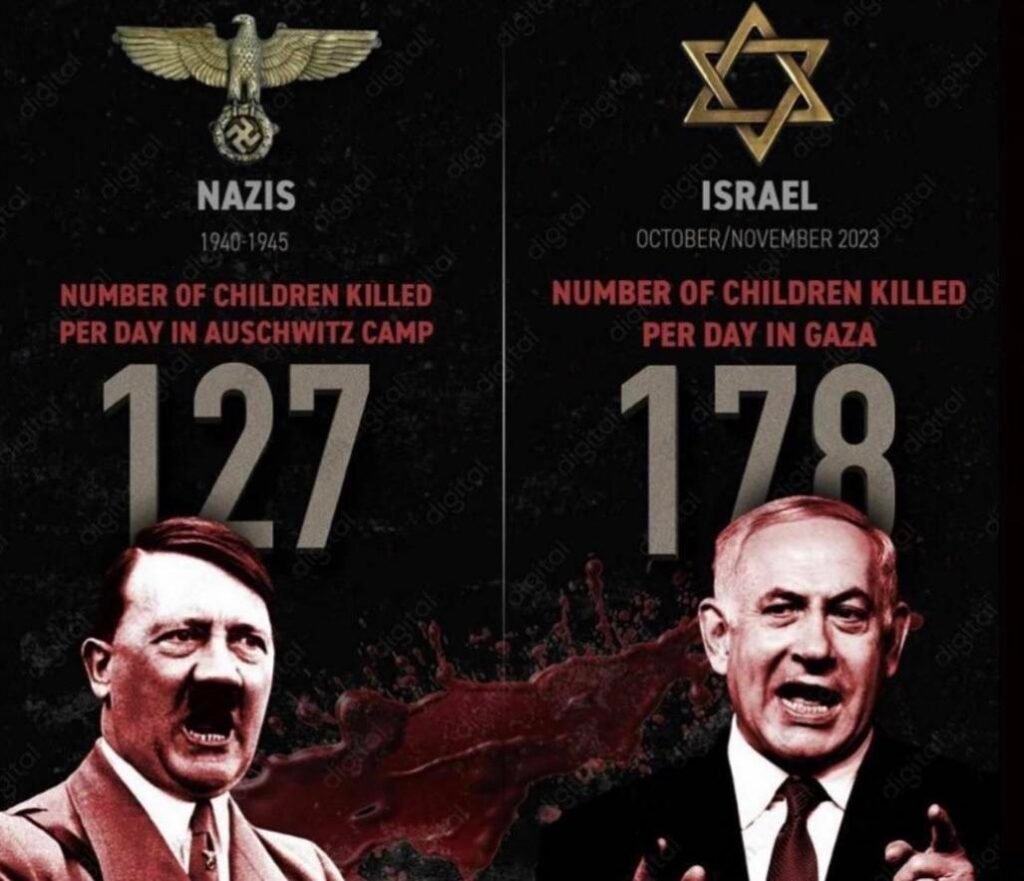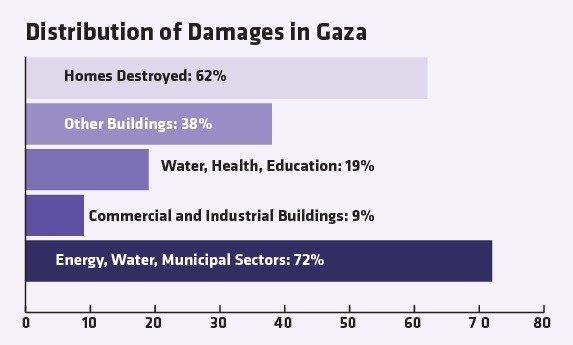Key highlights:
- A 2024 study by the Palestinian Center for Policy and Survey Research found that 70% of Palestinians likened Netanyahu’s policies to Hitler’s.
- Gaza’s infrastructure damage is estimated at $18.5 billion, with 62% of homes destroyed, about 291,000 units.
- Since 1967, Israel has faced over 700 resolutions condemning its actions by the United Nations General Assembly, more than any other country globally.
In the annals of history, few names have evoked as much controversy and polarization as that of Benjamin Netanyahu, the former Prime Minister of Israel. A growing number of voices are drawing alarming parallels between Netanyahu’s actions and the atrocities committed by one of history’s most notorious figures – Adolf Hitler. Once seen as a steadfast leader, Netanyahu has now been thrust into the spotlight for all the wrong reasons.
You Can Also Read: Will Israel-Iran Conflict Impact Bangladesh’s Economy?
Awami League’s General Secretary and Minister of Road Transport and Bridges, Obaidul Quader, compared Benjamin Netanyahu to Hitler, stating Netanyahu is more dangerous. Quader made these remarks during a press conference at Sheikh Hasina’s political office in Dhanmondi on April 16th.
He paralleled the current global political scene to Hitler’s era, highlighting Netanyahu’s actions resembling arrogance and aggression seen in World War II, resulting in the tragic loss of 6 million Jewish lives. Quader criticized Netanyahu’s disregard for international institutions like the UN and his defiance towards the White House. He emphasized the human cost of Netanyahu’s policies, citing the tragic deaths of 14,000 children in Gaza.

Quader expressed concerns about Netanyahu’s unchecked authority, drawing parallels to Hitler’s authoritarian regime, especially evident in Israel’s recent decision to attack Iran despite calls for restraint.
These remarks echo sentiments previously expressed by Turkish President Tayyip Erdogan on December 26, 2023, who also likened Netanyahu to Hitler and condemned Israel’s attacks on Gaza as reminiscent of Nazi atrocities.
From Strongman to Authoritarian?
In the early days of his political career, Netanyahu was often hailed as a strongman, a leader who could navigate Middle Eastern politics with a steady hand.

According to a study by the Jerusalem Center for Public Affairs, Netanyahu’s Likud party has used anti-Arab rhetoric in 30% of its election campaigns since 1996, compared to just 17% for other major Israeli parties. This calculated use of xenophobic messaging has allowed Netanyahu to cement his position as a “strong leader” in the eyes of many Israelis, much like Hitler did in Germany during the 1930s.
As his tenure progressed, a notable shift in the public perception began to emerge. Data from a 2023 Pew Research Center study revealed that 62% of Israelis viewed Netanyahu’s actions as “authoritarian” or “dictatorial,” a significant increase from the 49% recorded in 2020.
Moreover, the Global Democracy Index data highlights a notable decrease in Israel’s democracy score, sliding from 7.79 in 2006 (coinciding with Netanyahu’s assumption of office) to 7.13 by 2020, signaling a worrisome trend veering towards authoritarianism.

This shift in public sentiment can be attributed, in part, to Netanyahu’s increasingly hardline policies and rhetoric. Israel’s adoption of the “Nation-State Law” in 2023 sparked controversy as it was accused of entrenching Jewish hegemony while disregarding the rights of non-Jewish citizens.
A 2024 study by the Palestinian Center for Policy and Survey Research found that 70% of Palestinians likened Netanyahu’s policies to Hitler’s. Additionally, Amnesty International’s 2024 report accused Netanyahu of implementing “apartheid policies” against Palestinians, reverberating South Africa’s past.
Echoes of Hitler’s Holocaust
Netanyahu’s actions resonate with Holocaust atrocities, employing ethnic cleansing tactics akin to Hitler’s regime, displacing hundreds of thousands of Palestinians into overcrowded camps since the 2023 conflict.
Data from the United Nations Office for the Coordination of Humanitarian Affairs (OCHA) shows that the number of Israeli settlers in the West Bank has increased by over 50% since Netanyahu’s first term as Prime Minister in 1996, reaching a total of more than 600,000. This steady encroachment into Palestinian lands, coupled with the demolition of Palestinian homes and the displacement of thousands of civilians, has been widely condemned as a form of ethnic cleansing by human rights groups.
Over 33,600 lives, including 13,000 children, have been lost in Gaza since the outbreak of the war. In the West Bank, 460 individuals, including 117 children, have perished. Gaza’s infrastructure damage is estimated at $18.5 billion, with 62% of homes destroyed, about 291,000 units. Critical services like water, health, and education suffered, costing 19% of total damages, with commercial and industrial buildings at 9%.
Energy, water, and municipal sectors sustained nearly $800 million in damages. Gaza’s education system also collapsed, leaving 625,000 students out of school, with $341 million in infrastructure damages.

Confronting the Specter of Fascism
The consequences of Netanyahu’s actions extend far beyond the borders of Israel and Palestine. His support for the expansion of illegal settlements and his refusal to engage in meaningful peace negotiations have further inflamed tensions in the Middle East, jeopardizing regional stability and threatening to ignite a broader conflict.
In the 1930s, Hitler’s aggressive actions, such as the remilitarization of the Rhineland and the Anschluss (annexation) of Austria, flagrantly violated the Treaty of Versailles and other post-World War I agreements. Similarly, Netanyahu has consistently rejected calls from the United Nations, the European Union, and other international bodies to halt the expansion of Israeli settlements and to respect the rights of the Palestinian people.
According to data from the United Nations General Assembly, Israel has been the subject of more resolutions condemning its actions than any other country in the world, with over 700 such resolutions passed since 1967. Despite this overwhelming international condemnation, Netanyahu has remained steadfast in his support for the occupation of Palestinian territories and the continued construction of settlements.
Moreover, Netanyahu’s close ties with far-right, populist leaders around the world, including figures like Joe Biden and Viktor Orbán, have lent legitimacy to a growing global movement of authoritarian nationalism that poses a grave threat to the liberal democratic order.
The question that now looms large is whether the world will stand idly by as another potential humanitarian crisis unfolds, or whether the international community will take decisive action to hold Netanyahu and his government accountable. The stakes could not be higher, as the world grapples with the specter of a modern-day Hitler, whose actions have the potential to plunge the Middle East, and perhaps the world, into further turmoil.


